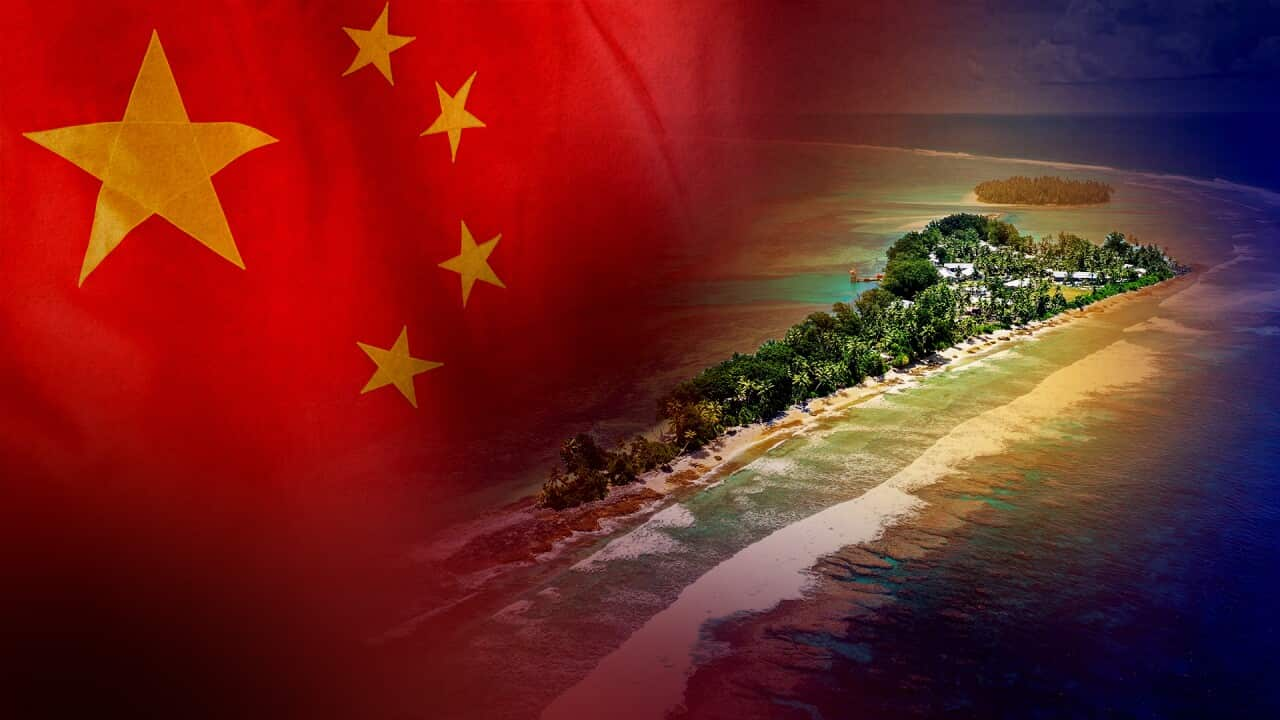China and Papua New Guinea held talks on a free-trade deal Friday, as Beijing's foreign minister wrapped up a landmark tour of the Pacific Islands with a stop in the resource-rich nation.
Papua New Guinea's Prime Minister James Marape said discussions in the capital Port Moresby had focused on economic cooperation and a long-mooted trade agreement.
China is already a major investor in Papua New Guinea and buys much of the country's gas, minerals, timber and other resources.
Beijing is vying with Australia to be Papua New Guinea's leading trading partner.
Mr Marape, who has vowed to make his country the world's richest black Christian nation, said he wants to shift the economy away from primary materials to more lucrative finished products.
He has invited more Chinese investment and said work was ongoing on a trade deal.
"China and Papua New Guinea officials are going through tidying Chinese-PNG free-trade arrangements," Mr Marape told journalists.
"The specifics of the free-trade arrangement are being finalised as we go through, so that Papua New Guinea interests are not suppressed or harmed, but maintained and in fact augmented," he said.
His comments come as China, Australia and other Western allies race for influence across the Pacific Islands.
The vast but sparsely populated region is home to vital shipping channels and - because of its location near areas where the Chinese and US militaries operate - seen as strategically important.
Chinese foreign minister Wang Yi has criss-crossed the South Pacific for more than a week, pressing the case for a greater role by Beijing in regional security.
But his visit to Port Moresby has been overshadowed by complaints that it comes too close to Papua New Guinea's elections, which will be held in coming weeks, with the result expected in August.
Mr Marape is facing a challenge for the premiership from former prime minister Peter O'Neill.
"Now is not the right time" for foreign visits, Mr O'Neill said, adding that the government "should not sign any agreements on behalf of the state".
Mr Marape dismissed that argument, saying "our country is still functional".
The two sides signed a series of agreements on investment in "green development", COVID-19 assistance, aid and health care.
Mr Wang's 10-day tour has seen the Pacific Islands reject a regional deal that would have given Beijing a much greater role in sensitive areas including policing, cybersecurity and maritime surveillance.
His trip prompted Australia's new foreign minister Penny Wong to make quick-fire visits to three Pacific Island states, looking to shore up decades-long alliances.
Speaking in Tonga on Friday, Ms Wong's host Prime Minister Siaosi Sovaleni stressed the importance of ties with Australia.
"There are common strands that bind us. They include respect for democracy, the rule of law, and the rights and freedoms of others. This remains the important tenets of our relations," he said.



